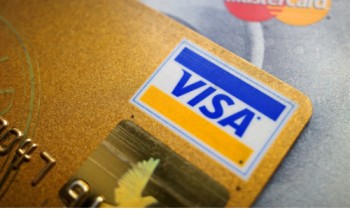Financial Tips for the Working Expats in Dubai
Invest smart today for a better tomorrow
If you are one of those who’ve decided to go against the conventional and respond to the call of self-employment you are on the right track. Self-employment is quite exciting and comes with a sea of opportunities that can make you successful and financially secure in life. If you’ve just started setting up your new dream business or you have been managing it for a long time, you would have experienced the financial challenges that arise with time.
Very often self-employed people struggle with managing their finances along with their business efficiently. This article will focus and shed light on financial management tips for self-employed individuals in the UAE.
Mastering and Managing your Budget
Unlike salaried employees who make a fixed figure every month, self-employed individuals make different amounts every month. Due to the given fact budgeting and financial management tips for self-employed are quite different from salaried employees. Self-employed individuals are highly prone to income fluctuations and to counter them they can make use of the following tips-
Prioritizing expenses and bills
For most of the self-employed individuals in the UAE a major liability is to pay bills and manage expenses so as to ensure smooth running. Self-employed individuals should prioritize and make repayments based on the priority which can help them manage their expenses efficiently.
Setting up the border between personal and professional expenses
Self-employed individuals should draw a line between personal and professional expenses to make sure that both of the expenses do not merge and create a haphazard for the business owner.
Set up an Emergency Fund
An emergency fund is an absolute must for everyone, but it is extremely crucial for self-employed as it hedges phases of financial instability and provides financial cushioning. The emergency fund that you set up should hold enough capital to ensure smooth running for three to six months. An emergency fund should acts as a safety net in the worst-case scenario, such as market swings, legal prosecution or underperformance of the business.

Plan for your retirement
Retirement planning is essential for all classes of people be it self-employed or salaried individuals. Retirement planning might appear to be a difficult task, to begin with, but there are dozens of specialists in the market that can assist individuals to select better options. Allocating a small fragment of your total income can help the smooth and efficient running of your business.
Invest in form of Percentage, not Amount
An important way to efficiently manage money for self-employed is to think in the form of percentages instead of amounts. While saving and investing self-employed individuals should emphasize investing a particular percentage of their income. If investors choose to invest in the form of a specific amount it can create a tautology as the monthly income for self-employed individuals is not constant and varies from month to month.
Use Extra Income for Maximizing Stability
Most of the salaried individuals have witnessed months where the financial performance of their businesses has been outstanding and months where the business has underperformed. During months when your business has performed extremely well which eventually leads to accumulation of capital business owners should save the extra income to counter income fluctuations.
Although it is not wrong to spend extra income to treat yourself, the primary focus of an ambitious business should always be maximizing profits and growing their business.

Make Timely Repayments and Avoid Debts
From the perspective of the business owner, timely payments are what keeps the show running. The majority of business owners have a significant amount of capital that is held in the market in the form of debts. Making timely repayment allows business owners to gain the trust of vendors and customers which promotes the growth of the business. Furthermore, if you are in the need of a loan to support your business try and repay the installments on time and avoid an extra penalty that can disturb your expenses and budget.
Never Bounce a Cheque
As per financial guidelines in the UAE bouncing a cheque is considered a crime. If you use cheques to make payments, you need to ensure that they don’t bounce. Bouncing a cheque in UAE can land you into jail or could lead to the imposition of a heavy penalty.
Get your business insured
Every business owner in the UAE should lay emphasis on getting their business covered under a customized tailored insurance plan that helps to safeguard the business against any potential threat. SME insurance offers extensive coverage for a variety of businesses and focuses on protecting against threats like natural calamities, legal prosecution, third-party liabilities, theft, burglary, etc. While purchasing insurance business owners should always remember that the cheapest insurance plan is not the best all the time. Business owners should select the insurance plan that suits their individual requirements at the lowest cost.
Conclusion
Being self-employed in the UAE is exhilarating, exciting and risky. It provides an opportunity to follow your passion and dreams and make your path in life. With the help of the financial tips mentioned in the article, you can maximize your returns and grow your business substantially.
More From Investment
- Recent Articles
- Popular Articles




















